Story
What is Project H?
One United Conversation
In a society that offers opportunities for everyone, no one person should be excluded because they belong to a particular ethnic group, hold certain religious beliefs, or happen to be a woman. Nor should a person be discriminated against because they have a disability, make specific choices or stand out in some way. The safeguarding of physical, psychological and emotional safety is the continual task of a developed society that has the institutions, norms, cultural patterns and ethical agreements to ensure its members accrue physiological, intellectual, economic, financial and social capital. A society that respects freedom, rewards empathy and solidarity, ensures fair treatment and access to health and education, and works to guarantee physical and emotional wellbeing, is the kind of society we wish to build and inhabit.
Our Vision
At CESA’s Center for Corporate Governance Studies (CEGC), we believe organizations and the people who run them have a fundamental role to play in the construction of a better society. Governance actors are crucial in the direction and monitoring of all types of organization, and the leadership they exercise impacts a society’s culture, values and organizational principles, and the way in which it pursues and achieves results.
Our Purpose
The CEGC’s work focuses on the intersection between the society we desire and the role played by the organizations and individuals that lead its development. At CESA, we assume the role that specifically applies to us, as individuals, as an organization, and as a higher education institution. We recognize that academia can use various mechanisms to help build a better society.
The Challenge
Our work has made us aware of one relevant aspect relating to equity, in general, and gender equity, in particular. It’s important to note that a lack of participation, representation and opportunities for various groups does not affect just those groups, but society as a whole.
We ask ourselves...
We ask ourselves questions that are not intended to be prejudicial, but seek to extend our understanding:
Where are men in the question of gender equity?
What can male leaders do to prioritize equity, diversity and inclusion?
How can we generate spaces for men to take responsibility for the social and cultural transformation this requires?
How can we ensure reflections on this subject occur naturally, and men are willing to assume their role?
How it started
Projecto H therefore contributes to the ecosystem designed to advance diversity, equity and inclusion in Colombia, bringing together male business leaders, who are corporate governance actors, encouraging them to discuss the issue and connecting them with efforts that are already ongoing on the part of women’s groups and academia in general.
The work group that led to the creation of Proyecto H has been made up of business leaders including Mariajose Quinceno, Meme Escandon, Carolina Nieto, Ana Fergusson, Maria Bibiana Botero, Emilia Restrepo, Ricardo Pineda, Ana Cristina Quintero, Paula Vega and ourselves, Maria Andrea Trujillo and Alexander Guzman. Thanks to our combined efforts, a book and various podcasts have been made available, which we hope will inspire our joint reflections on the society we all form part of, and wish to transform.
What is Project H?
One United Conversation
These three events led to the formation of a working group aimed at building a new platform for the country that puts this conversation at the forefront. This is how “The M Project: One United Conversation” was born. It is a space for male business leaders to exchange the experiences, good practices and challenges they have encountered in their personal and organizational spheres, addressing emotions as well as the personal, conceptual and professional challenges that arise out of issues related to diversity, equity and inclusion. It is hoped this will lead to an understanding of the role male leaders must play. Proyecto H seeks to promote a cultural shift in Colombia’s business sector that will make it more diverse, equitable and inclusive. Encouraging men, who are leaders and decision-makers, to have this conversation will hopefully help consolidate awareness and support for multi-lateral action between academia, companies, institutions and individuals. It therefore represents a bridge for the dialogue necessary to help build genuine equity in the workplace, instead of an ongoing reliance on charity, personal consciences and favors.

These questions arose following an invitation made by Nicolas Uribe Rueda at the end of the first day of the Women on Boards of Directors’ Annual Meeting, at the Medellin Chamber of Commerce for Antioquia. Nicolas convinced us that men, exclusively, ought to come together to address the role of male leaders in the business sector when it comes to building a more diverse, equitable and inclusive society. This linked to an observation Maria Jimena (‘Meme’) Escandón had previously made: it is not easy to find documents written by men that address issues of diversity, equity and inclusion. We later had a working breakfast with Juan Carlos Mora and Felipe Bayon to find out what action they had taken on these issues, what inspired them, what challenges they encountered and if they considered it necessary to create a specific space for men to have this conversation.
Nuestra Mesa de Trabajo
Mariajosé Quinceno, Meme Escandón, Carolina Nieto, Ana Fergusson, María Bibiana Botero, Emilia Restrepo, Ricardo Pineda, Ana Cristina Quintero, Paula Vega, y nosotros, María Andrea Trujillo y Alexander Guzmán.

Drawing on the efforts, achievements, challenges and reflections of Felipe Bayón, Pedro Felipe Carvajal, David Colmenares, Miguel Cortes, David Escobar, Juan Carlos Mora, José Manuel Restrepo, Sergio Rincón and Nicolás Uribe, and with an eye on stories of exceptional business leadership, we seek to demonstrate the powerful role male leaders can play in diversity, equity and inclusion, and the impact men committed to these goals can have on both their organizations and their country.

Thanks to Ricardo Pineda and his Talent Hackers podcast, several excellent podcasts are available where male leaders share their experiences and role in advancing diversity, equity and inclusion.

